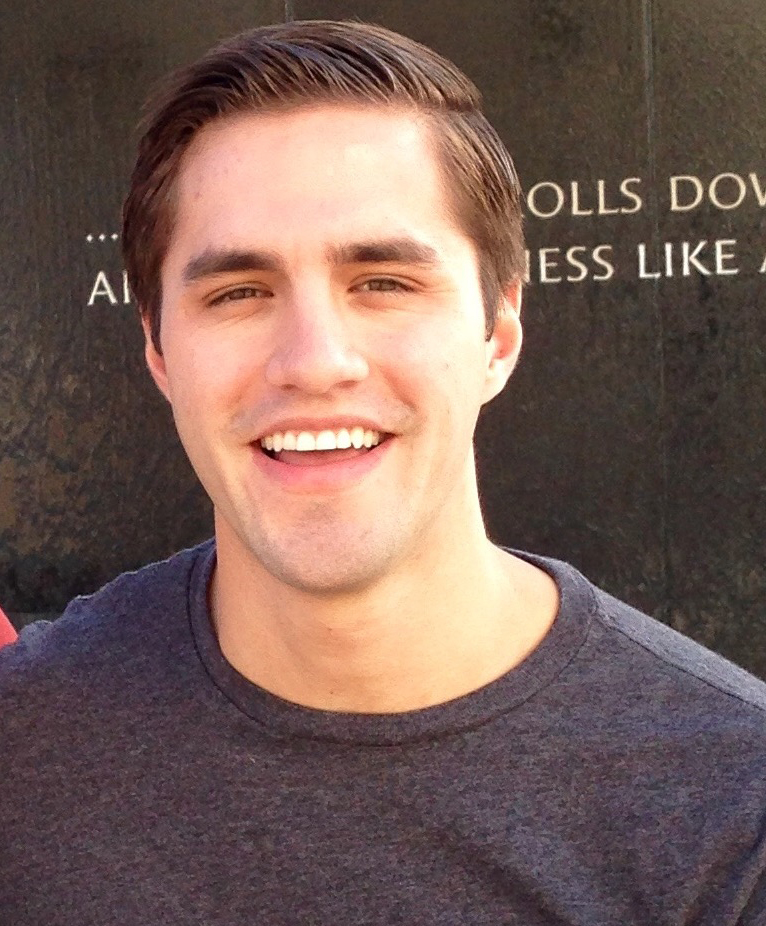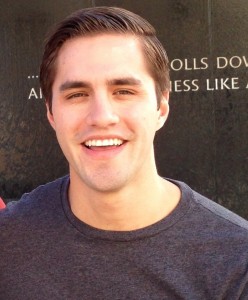Wes Brown graduated from UT in 2011 with degrees in Business Honors and Chemistry. Since graduating, he has been pursuing an MD from Harvard Medical School, as well as a Master in Public Policy from the John F. Kennedy School of Government and a Master of Philosophy in Public Health from the University of Cambridge. Needless to say, he has been quite busy.
You are completing two master’s degrees along with your MD. Why did you decide to take on the master’s programs at the same time?
I came across the masters in public policy option during med school. Because I went straight through from undergrad to med school, I thought it would be practical to try something else. We got a month of health policy training during our first year, but I felt I didn’t know enough about how the health care system worked and thought it would be useful to explore that world further. Learning about the options available within the policy sphere would be a nice supplement to my future in health care. I started taking classes in the Kennedy School and was exposed to work in behavioral economics. I was challenged by my professors to explore the public health applications of behavioral economics, which led me to the master’s program in England that integrated public health, philosophy, and the behavioral sciences. The subsequent interest in public health has really been an extension of my pursuit of the public policy degree.
Harvard is good about supporting students who want to pursue interests outside the box, including experiences abroad. I’ve learned a lot about the policy world in the past year, which has supplemented the business training I received at UT and current medical training. It’s been fascinating to see how different these worlds are and how they interact.
I recently completed the Zuckerman Fellowship in Harvard’s Center for Public Leadership. The program fully funds 16 students from across the country who are pursuing an MBA, MD, or law degree and are interested in pursuing a master’s in public health, public policy, or graduate education at Harvard. It has been a remarkable experience. They’ve had great programming that has brought me together with other professionals from across the country who have a variety of interests, but all want to tackle some of the most difficult problems facing the public sector. I’m very lucky to have been able to do it.
What similarities and differences were there in applying to your master’s programs and to medical school at Harvard?
They are very different, which is probably why many don’t combine them. Both programs want well-rounded people who are truly motivated to make meaningful change in the world. You have to have a working vision around the change you want to see. The medical school has a more regimented, formulaic way of applying to it. The masters programs are a departure from the more formulaic application you experience in med school.
The most challenging part of the med school application process was the interviews. I didn’t know what to expect. Fortunately, my interviews at Harvard were very personable since the interviewers were genuinely interested in learning more about me. They were interested in how well I could talk about what I had done and why I was interested in medicine. They weren’t just looking for the “right” answers to questions.
How did being a BHP and chemistry major prepare you for graduate and medical school?
In terms of coursework, I fell in love with operations management. The BHP curriculum allowed me to explore OM, and I’ve used it in the healthcare research I’ve done. I’ve been excited by its potential applications to areas that may not be directly related to business like health care. It was also incredibly beneficial to have exposure to my fellow classmates and the conversations we had in class. Just being in that atmosphere—small classes where the professors knew us in addition to intellectual engagement in challenging discussions—was very useful. That environment gave me the confidence to engage with future challenges that I’ve faced in med school.
I really enjoyed both majors and seeing how they were similar and different. It was useful for me to learn how the science and business worlds approached problems differently. Often in the public sector, these two groups talk past each other, and it was useful to learn more about why that is. I had a very broad education at UT, and I knew this was something UT could offer over other schools. During med school interviews, it played a positive role because those practicing medicine often don’t have a business background. I think the interviewers found my business knowledge refreshing since they tend to have applicants who are just science majors.
Even with your busy schedule, you have still managed to find time to be involved. Tell me about the leadership roles you have taken on at Harvard and the experiences you have gained from those roles.
Coming out of the closet during my first year of med school allowed me to get involved in the Harvard Medical School LGBT organization’s leadership. Medicine is a traditionally conservative field, so there were plenty of opportunities to work with the staff to see how we could better support patients, physicians, and students who identified as LGBT within that realm. I learned a lot about myself and the system, and how difficult it was to change something in a timely manner. In one project, we worked with the administration to give applicants an opportunity to express any hardships in an application essay. There wasn’t a place to do this initially. Now applicants can demonstrate that they are LGBT and describe what they have overcome to get to where they are. The change has increased the number of accepted LGBT applicants to 10-15 people from 3-4 in my year.
I also got involved in the LGBTQ Policy Journal at HKS as the health policy editor, which gave me practical skills in the editing/publishing process. Additionally, I was elected to the medical school’s Center for Primary Care Student Leadership Committee, which promoted primary care opportunities to students and staff at Harvard. My experiences in this role and recognition of the increasing need for primary care heightened my interests in primary care and health policy in general.
What are your tips for people juggling challenging academics and busy schedules like so many of our students?
Do what you love. It is so important to go after what you’re passionate about. This will serve you better in the medical field (or the application process) than simply trying to do as many things as possible. Don’t be afraid to go off the common path and create your own towards whatever goal you have. Don’t be afraid to reach out to people who are doing things you’re interested in. I have a mentor who was a couple years ahead of me in BHP who went to HMS. She’s been mentoring me for the past eight years and has been so important in helping me navigate graduate school and tough classes.
What is your ultimate career goal once you have completed your schooling and residency?
I’m choosing between internal medicine (primary care) and emergency medicine. Both are generalist in-nature, and I like that because of the problem-solving skills required. My ideal career also incorporates health policy research in an academic medical center and involvement in healthcare politics in Washington. I see my future being a mix of research, education, management, and clinic. There are plenty of career paths in medicine that allow for this flexibility. I’ll graduate in 2017 and plan to complete residency by 2020.
What public health challenges are you most passionate about?
The future of primary care. We have the Affordable Care Act and increased access to healthcare, but if we don’t have enough providers in places to deliver that care, then we have a problem. It’s a serious supply-demand mismatch. I’m not sure what the answer is, but I believe any solution should treat primary care as the centerpiece and foundation of the health care system.
I’m also passionate about medical education and how it’s going to evolve over time. I’ve had my eye on Dell Medical School for a while, because I’m interested to see what innovative ideas they come up with. Beyond medical school, I’m interested in how we’re going to fund more residency spots in the future. We need to figure out from a policy standpoint how to bolster these numbers.
I couldn’t see myself doing anything but medicine, and I want others who are interested to know that it’s a great field to go into because it’s very exciting, rapidly changing, multidisciplinary, and tremendously satisfying as a career.



So proud of you Wes! You have worked extremely hard and have accomplished so much. Congratulations!